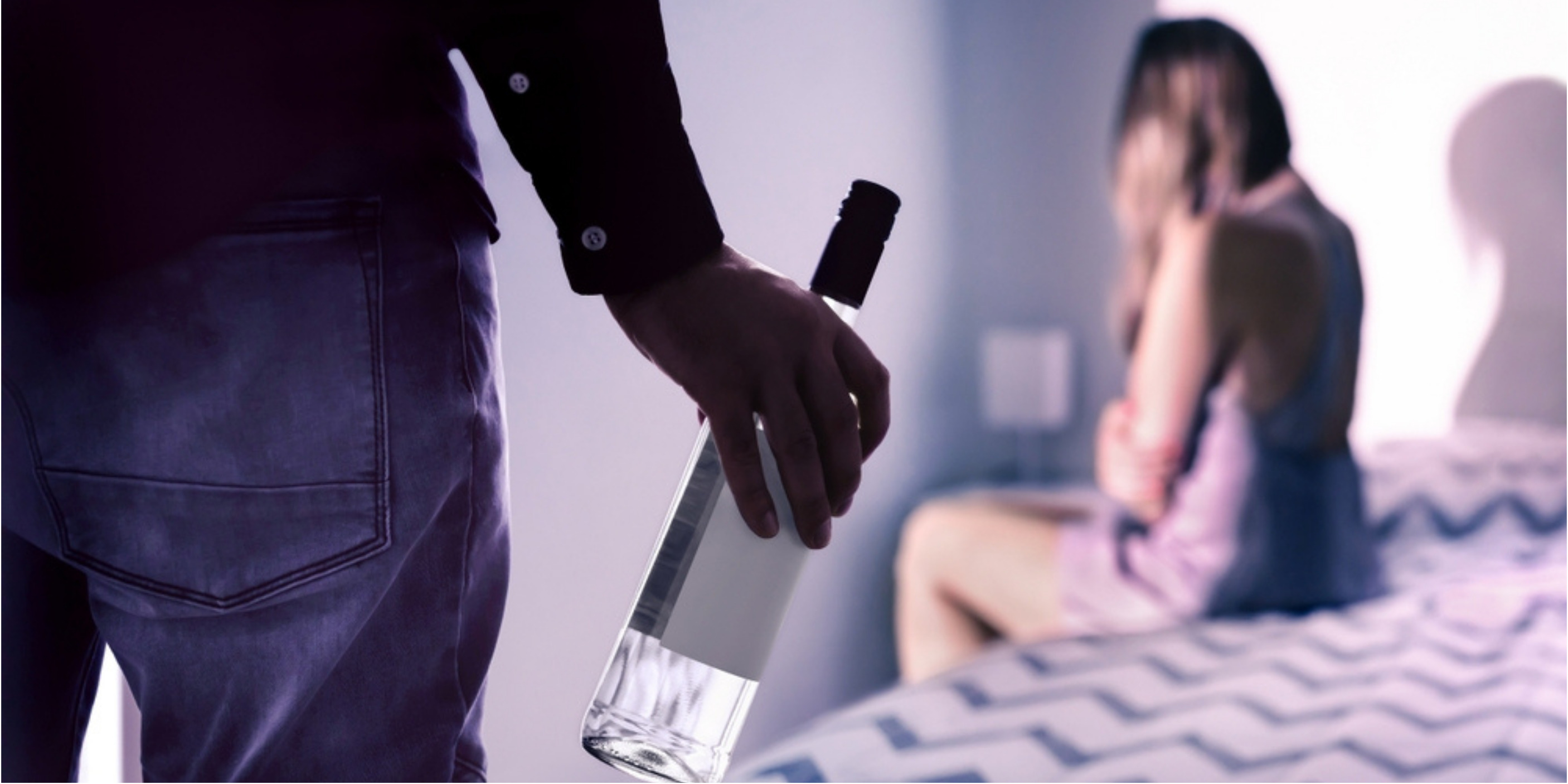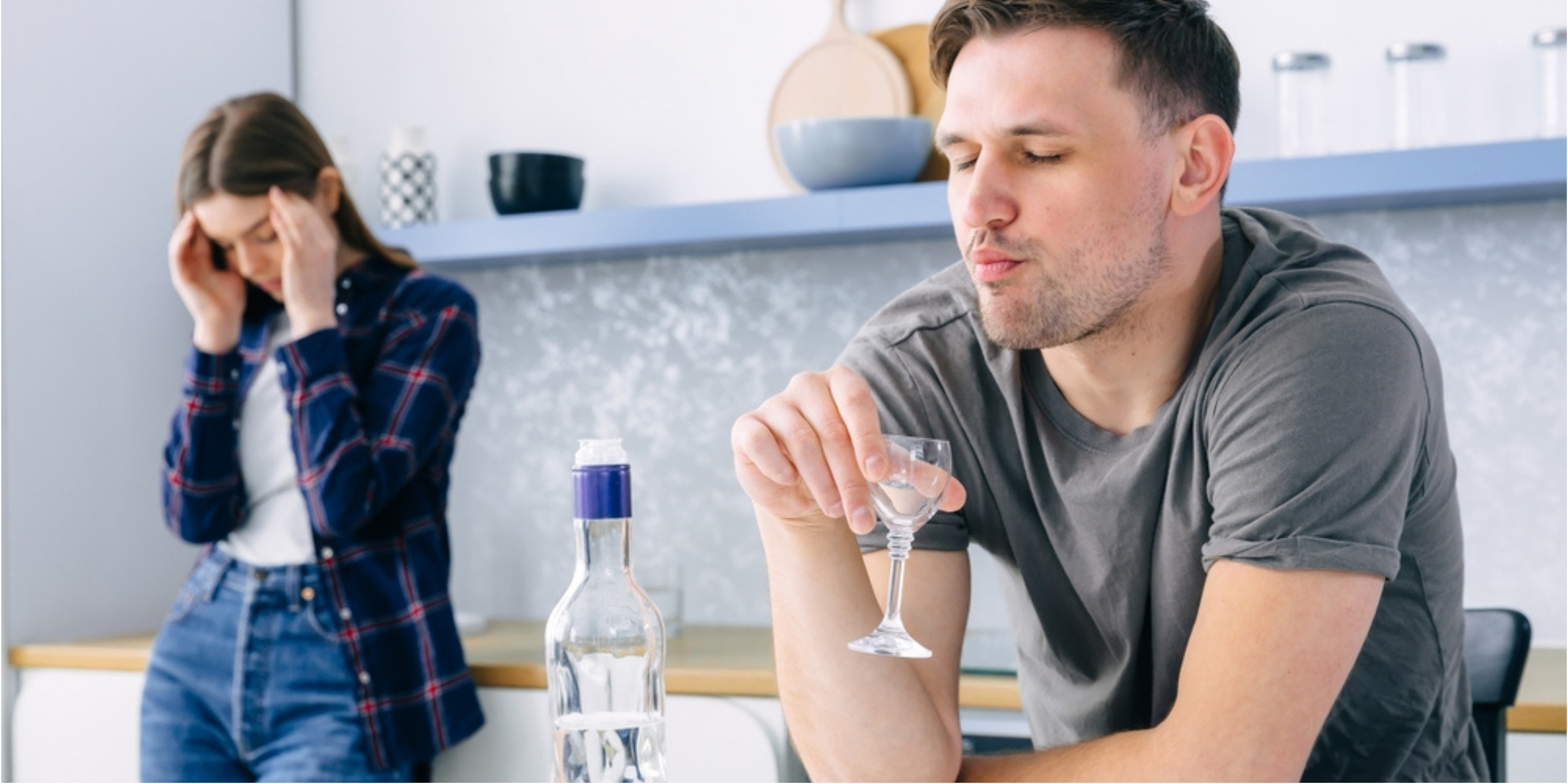Last Updated:
April 14th, 2025
Is my partner’s drinking problematic?
You may have started noticing small changes in your partner’s drinking habits. Perhaps they used to drink socially or in moderation, but recently, their drinking has become more frequent or has led to concerning behaviours. The trouble is, it’s not always easy to tell if someone’s drinking has truly become problematic, especially if they still manage their daily responsibilities and there haven’t been any obvious incidents.
Sometimes, the signs of problematic drinking can be subtle. For example:
- They seem more irritable or withdrawn when they haven’t had a drink.
- Alcohol is creeping into situations where they wouldn’t usually drink, such as first thing in the morning or before important events.
- They brush off concerns about their drinking, making excuses or saying they just ‘had a tough day.’
- Plans or routines are increasingly revolving around when and where they can drink.
If any of this feels familiar, it doesn’t necessarily mean your partner has alcoholism. Rather than immediately labelling them, it may help to consider whether they need a break from alcohol to reassess their relationship with it. Some people find that stepping back for some time gives them clarity on whether alcohol has started to take a bigger role in their lives than they’d like.
Why your partner may struggle to reduce drinking
If your partner is finding it difficult to reduce their drinking, it’s not necessarily a reflection of their willpower or character. Alcohol dependency can develop gradually, often without a person fully realising how much they rely on it. While some people may drink socially or to unwind, others use alcohol as a way to cope with stress, anxiety or deeper emotional struggles. Over time, their brain adapts to the presence of alcohol, making it harder to function without it.
This can create a cycle where stopping feels almost impossible. Withdrawal symptoms, such as restlessness, irritability and even physical discomfort, can make quitting on their own incredibly challenging. Psychological cravings can also be overwhelming, pushing them back towards alcohol even when they genuinely want to cut down.
It’s important to approach this situation with understanding. Your partner may not be drinking because they want to but because they feel they have to. Acknowledging this can help you support them in a way that feels helpful rather than confrontational.
Should I confront my partner about their drinking?
If you’re concerned about your partner’s drinking, bringing it up in a conversation is an important step but timing and approach matter. This isn’t a chance to accuse or blame but about opening a space where they feel safe enough to be honest.
Choose a time when they’re sober and in a calm state of mind. Avoid starting the conversation during or immediately after an argument, as emotions can cloud the discussion. Instead of using language that feels like an attack, such as “You always drink too much,” try expressing how their drinking affects you. Saying something like, “I’ve noticed that alcohol seems to be taking a bigger role in your life, and I’m worried about you”, keeps the conversation open rather than defensive.
It’s also important to listen. Your partner may not immediately agree that there’s a problem, or they may have reasons for drinking that you hadn’t considered. The goal isn’t to pressure them into stopping immediately but to plant the seed that their drinking may need attention. If they show any recognition of the issue, that’s a positive step. For now, this should be a private discussion between the two of you. If their drinking isn’t severe, they may be able to make changes on their own before professional help is needed.
My partner recognises alcohol issues; how can I help them?
If your partner admits that their drinking has become a problem, this is an encouraging sign. However, recognition alone isn’t always enough to create change, and your support can make a huge difference during this time.
Encouraging them to set small, realistic goals (such as reducing how often they drink or switching to lower-alcohol options) can be a good starting point. If they’re open to it, they could try tracking their drinking habits to identify patterns or triggers. Sometimes, simply becoming aware of how much they drink can be an eye-opener.
Another way to help is by offering to make lifestyle adjustments together. If drinking has been a shared activity, suggest alternatives like evening walks or alcohol-free social outings that can create a sense of togetherness in the process.
Most importantly, be patient. Change doesn’t happen overnight, and there may be setbacks. Avoid shaming them if they struggle and instead remind them that progress is still progress, no matter how slow.
My partner isn’t responding to my concerns about their drinking
If your partner doesn’t acknowledge their drinking as a problem or refuses to discuss it, you may feel helpless. However, there are still ways to encourage change.
One approach is to set boundaries. This doesn’t mean ultimatums but rather making it clear how their drinking affects you and what you are or aren’t comfortable with. For example, you might express that you don’t want alcohol in the house or that you’re unwilling to cover for them when drinking leads to problems.
If their drinking is significantly affecting their well-being and relationships, an intervention may be worth considering. An intervention involves gathering close friends or family members to share their concerns in a structured way. It isn’t about confrontation but about presenting a united front that encourages the person to seek help.
For an intervention to be effective, planning is key. It’s helpful to prepare what you’ll say beforehand, keeping the focus on care and support rather than blame. If your partner feels like everyone is against them, they may shut down rather than listen. The goal is not to force them into treatment but to help them see that help is available and that people who care about them want to see them well.
My partner wants to stop drinking, but they’re struggling
If your partner has expressed a desire to stop drinking but finds it difficult, it may be a sign that their body and mind have become dependent on alcohol. While only a medical professional can diagnose an alcohol addiction, the following questions can help gauge the severity of their struggle:
- Have they ever tried to stop drinking but found themselves going back to it, even when they didn’t want to?
- Do they experience withdrawal symptoms, such as irritability, anxiety, nausea or shaking when they go without alcohol?
- Have they started needing more alcohol to feel the same effects they once did?
- Do they drink alone or in secret to hide their alcohol use?
- Has drinking caused problems in their relationships, work or personal responsibilities?
If your partner answers ‘yes’ to several of these questions, it may suggest that they’re experiencing alcohol addiction. This isn’t something they can overcome through willpower alone. Encouraging them to speak with a healthcare professional can help them get the support they need.
How can alcohol rehab help my partner?
Alcohol rehab provides structured support to help individuals break free from alcohol dependency in a safe and effective way. The process usually begins with an assessment to understand their drinking habits and any underlying mental health concerns. If necessary, a medically supervised detox will help them manage withdrawal symptoms safely.
Rehab also offers therapy to address the root causes of their drinking. Cognitive behavioural therapy (CBT) is commonly used to help change thought patterns related to alcohol use, while group therapy provides support from others who are going through similar struggles. Holistic approaches, such as meditation and art therapy, can also help develop healthier coping mechanisms.
After completing rehab, ongoing support is essential. Many programmes provide aftercare services, such as follow-up counselling and peer support groups, to help maintain long-term sobriety.
What can I do next?
If your partner’s drinking is causing distress, but they are unsure how to move forward, now may be the time to seek professional guidance. Whether they need counselling, a structured treatment programme or simply a space to talk, support is available.
You don’t have to face this alone, and neither does your partner. UKAT offers confidential advice on the best next steps, guiding you through our rehab options and available support. Reach out today to find the right path for both your partner and your relationship.


